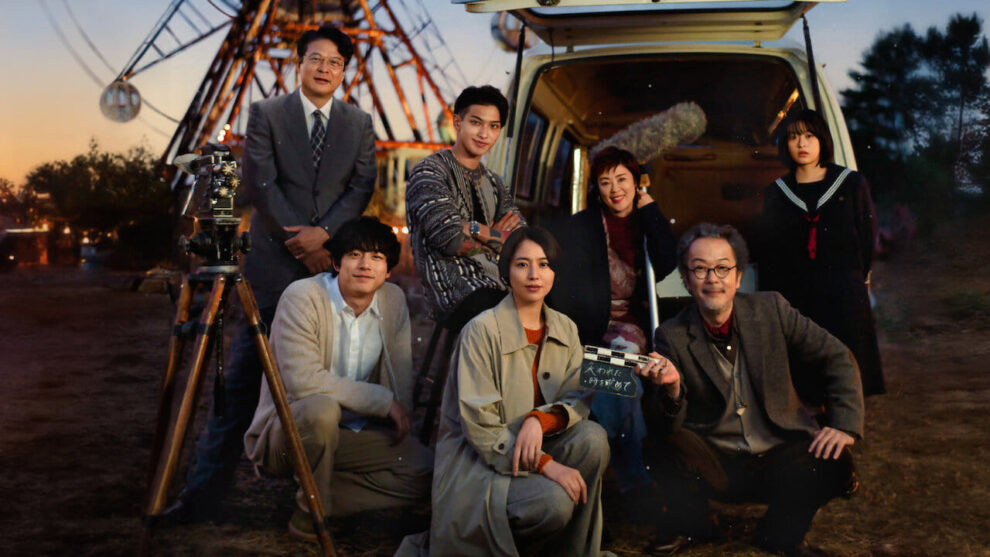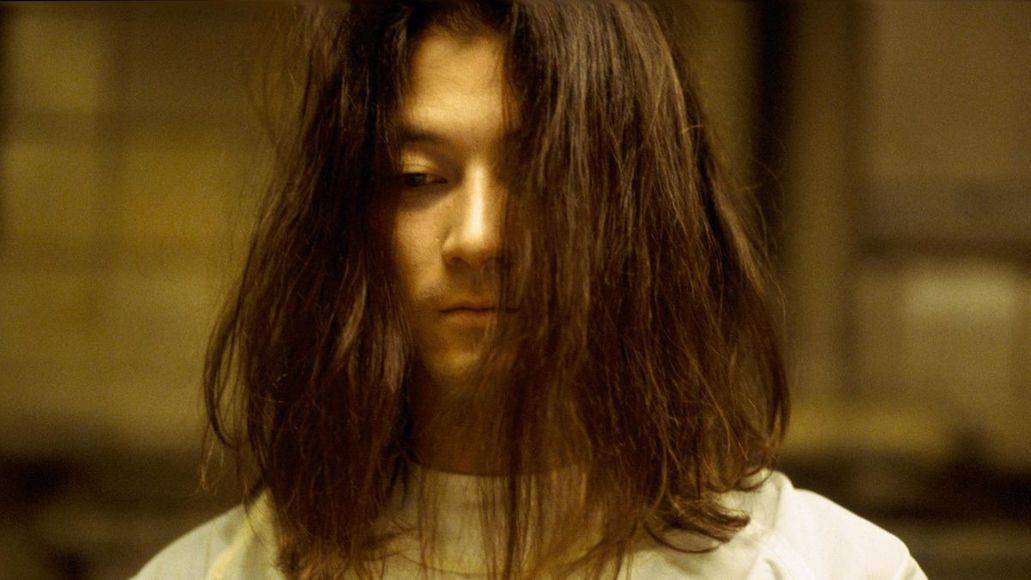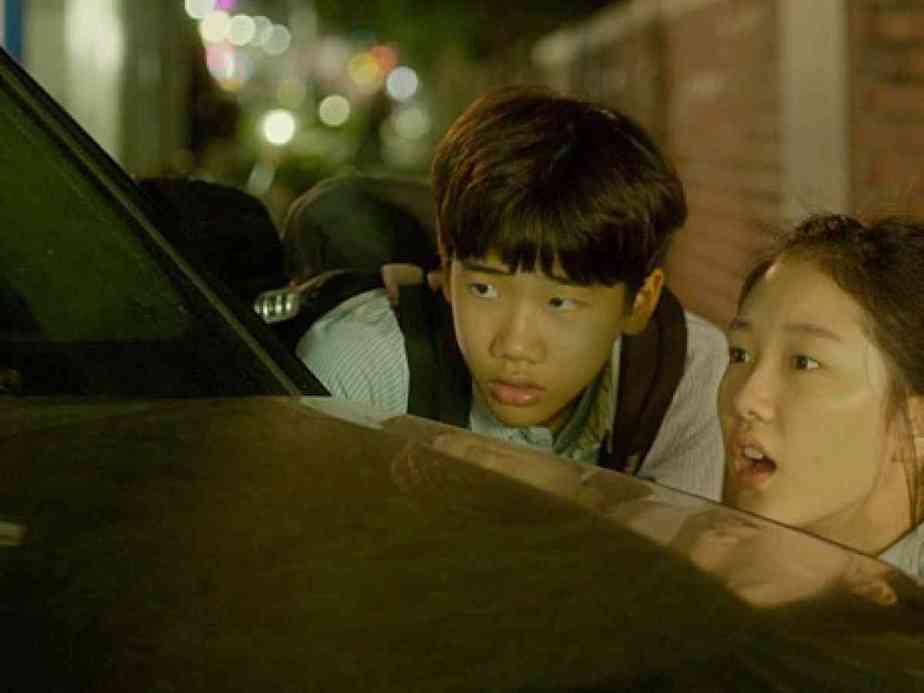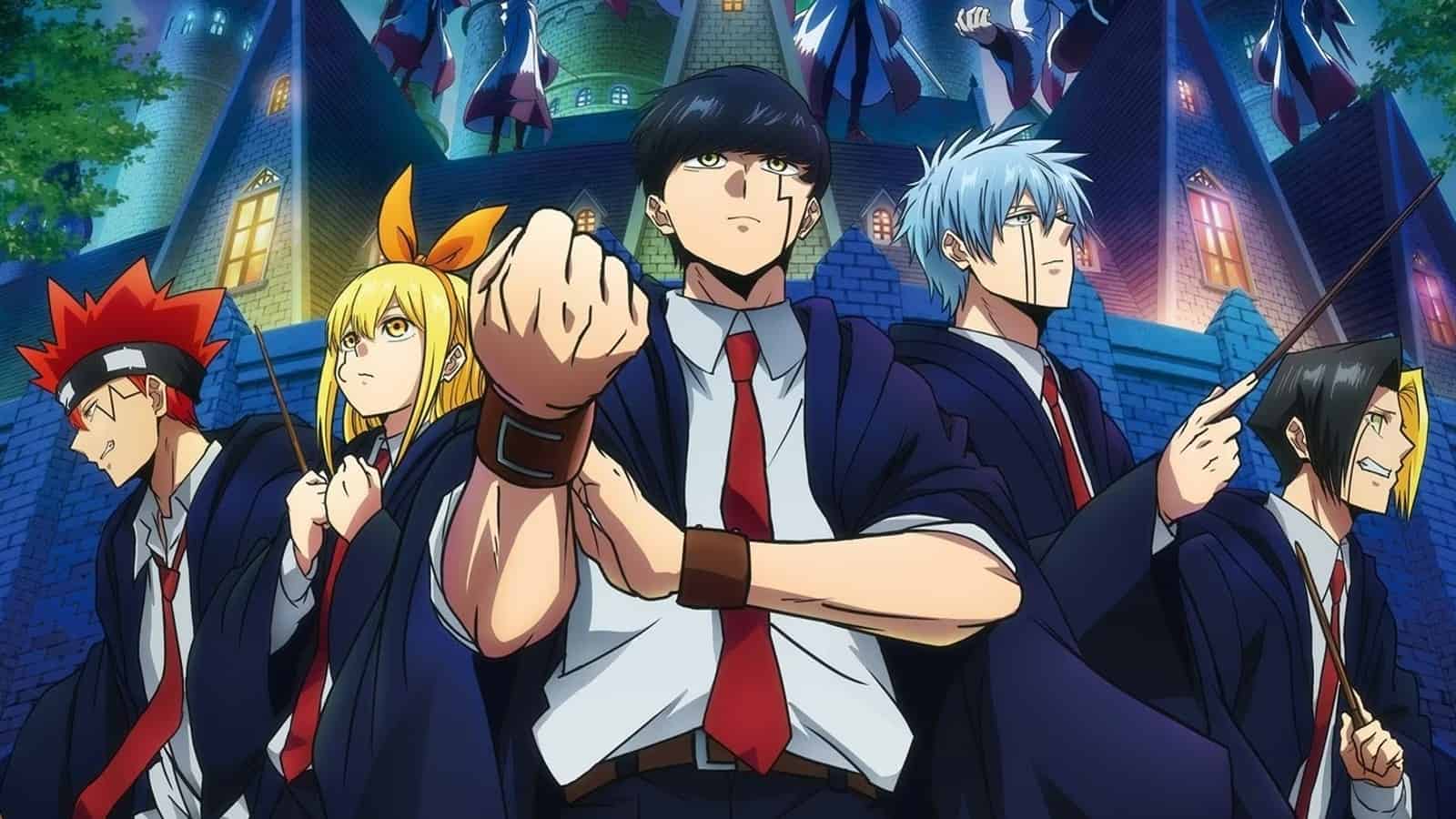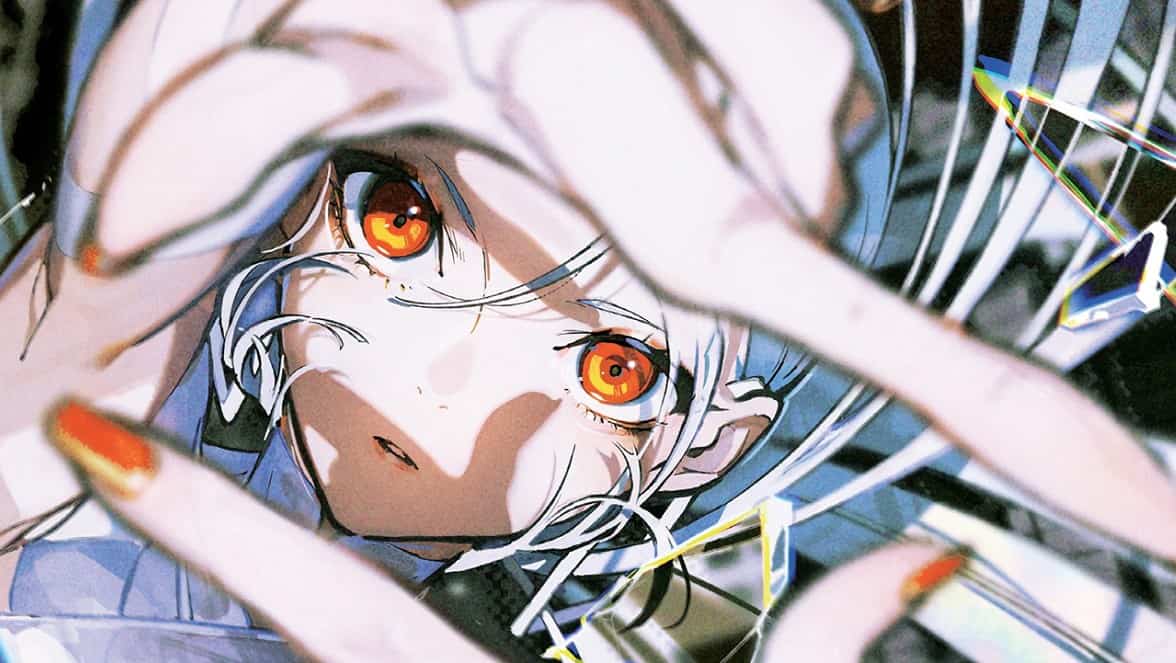Michihito Fujii has been working like a factory lately for Netflix, with the majority of his latest works featuring in the streaming service, including “Ghost in the Shell: SAC_2045”, and the more recent “Hard Days” and “Village” among others. His latest work, however, signals a change to a “tamer” narrative, as “The Parades” is a drama about the afterlife, inspired by the Fukushima disaster.
Click the image below to follow our Tribute to Netflix

Minako, a TV reporter and single mother, finds herself roaming the area she lived in after the 2011 Great East Japan Earthquake, in search of her lost boy. Soon she realizes though, that she is dead and that the living cannot see or hear her. While getting totally lost about her new reality, she is discovered by Akira, a writer who is in the same situation, who takes her under his wing and introduces her to his “gang” who live around a bar, run by Kaori. A former yakuza, Katsutoshi, a movie producer, Michael, a banker, Tanaka, and eventually a high school student, Nana are all part of a group who have realized that they can move to the next realm once they've made peace with their regrets and obligations to those they left behind. Lingering somewhere between wishing to stay in this half-living state for longer and settling their loose ends, the group help each other in all aspects, becoming intimate friends in the process. Gradually, Minako adapts to her new situation, while also becoming a “mentor” for Nana.
One of the most evident elements here is the anime references (inspirations or loans if you prefer) with the bar in between worlds ‘winking' at ‘Bartender” and a number of other elements reminding intently of Makoto Shinkai's works, with the parade that takes place with every new moon, in the most visually impressive sequence in the movie, being the most evident aspect.
Check the interview with the director
Apart from that, and as it becomes evident from the synopsis, the story follows the background of the protagonists, each of whom presents an aspect of Japanese society, although eventually the narrative focuses more on their family situation. In that fashion, Katsutoshi functions as the ‘representative' of the organized crime; Kaori, the woman focused on family, Akira the publishing sector, Minako the press, and Nana, the school environment, which inevitably moves into the topic of bullying and suicide. While all these side stories move towards family and love eventually, Michael's and his will to finish the last movie he was shooting becomes the focal point here, with the members of the group finding relief by helping him achieve his goal, with his arc also representing how the movie industry works. Again expectedly, his goal is revealed to be about love in the end too, although to a lesser extent.
It is also this part that becomes the main medium of nostalgia, which emerges as one of the central elements of the narrative. Michihito Fujii handles it quite well, as he does with the drama and the various arcs, which may move to sentimental and cliched paths on occasion, but are definitely measured, not hitting the reef of the melodrama, at least for the most part.
Also of note here is the rapport among the characters, which owes much to both direction and writing, and the acting and casting, which includes some of the most likable (and famous) actors in the local industry at the moment. Masami Nagasawa highlights her transformation rather nicely as Minako, while Kentaro Sakaguchi as Akira handles the nice guy who has left his crime past behind equally well. Ryusei Yokohama as Katsutoshi is convincing as the kind and calm man with regrets, with his chemistry with Nagasawa, within the inevitable romance, being among the best parts of the movie. Shinobu Terajima plays the kind ‘mama-san' excellently, while Nana Mori portrays the angry teenager who mellows quite nicely. The one who steals the show, though, is Lily Franky as the producer with the stutter, with his arc being the biggest and the most central one in the movie, and him carrying the whole thing in the best fashion, presenting, as almost always, a character that everybody would like to hang out with.
Evidently, there are too many arcs and characters here, and Fujii, even in the 132 minutes the film lasts, does not manage to develop them all properly, with the mentions of the student protests of the 60s for example, being a tad excessive in their inclusion. It seems that the film also functions as a kind of homage to Japanese cinema (and the country's history to a point) but this aspect does not work particularly well. Furthermore, the issues modern Japanese cinema exhibits are also present. Almost complete lack of tension, lagging throughout the movie, and the ever-present scenes by the sea out of nowhere can be found here in all their glory.
On the other hand, the dystopian setting with the bar and the impressive houses the protagonists live in is quite appealing to watch, with Keisuke Imamura's cinematography presenting them in excellent fashion, and the scenes with the parade definitely staying on mind. The editing results in a mid-tempo that fits the multi-arc story, although, as mentioned before, there are unnecessary scenes and lagging throughout.
All in all, one could say that “The Parades” incorporates all the good and the bad of contemporary Japanese cinema, but definitely succeeds in one very important factor, of putting a smile on the face of its viewer, which is what deems the movie a success in the end.


